BMW iX1 vs Toyota C-HR - Differences and prices compared
Compare performance (313 HP vs 223 HP), boot space and price (41800 £ vs 29100 £ ) at a glance. Find out which car is the better choice for you – BMW iX1 or Toyota C-HR?
Costs and Efficiency:
Price and efficiency are often the first things buyers look at. Here it becomes clear which model has the long-term edge – whether at the pump, the plug, or in purchase price.
Toyota C-HR has a clearly advantage in terms of price – it starts at 29100 £ , while the BMW iX1 costs 41800 £ . That’s a price difference of around 12694 £.
As for electric range, the BMW iX1 performs decisively better – achieving up to 463 km, about 395 km more than the Toyota C-HR.
Engine and Performance:
Power, torque and acceleration say a lot about how a car feels on the road. This is where you see which model delivers more driving dynamics.
When it comes to engine power, the BMW iX1 has a noticeable edge – offering 313 HP compared to 223 HP. That’s roughly 90 HP more horsepower.
In acceleration from 0 to 100 km/h, the BMW iX1 is clearly perceptible quicker – completing the sprint in 5.60 s, while the Toyota C-HR takes 7.40 s. That’s about 1.80 s faster.
There’s no difference in top speed – both reach 180 km/h.
Space and Everyday Use:
Beyond pure performance, interior space and usability matter most in daily life. This is where you see which car is more practical and versatile.
Both vehicles offer seating for 5 people.
In curb weight, Toyota C-HR is noticeable lighter – 1505 kg compared to 1940 kg. The difference is around 435 kg.
In terms of boot space, the BMW iX1 offers slight more room – 490 L compared to 447 L. That’s a difference of about 43 L.
In maximum load capacity, the BMW iX1 performs distinct better – up to 1495 L, which is about 340 L more than the Toyota C-HR.
When it comes to payload, BMW iX1 a bit takes the win – 495 kg compared to 425 kg. That’s a difference of about 70 kg.
Who wins the race?
The BMW iX1 proves to be is largely superior and therefore becomes our DriveDuel Champion!
BMW iX1 is the better all-rounder in this comparison.
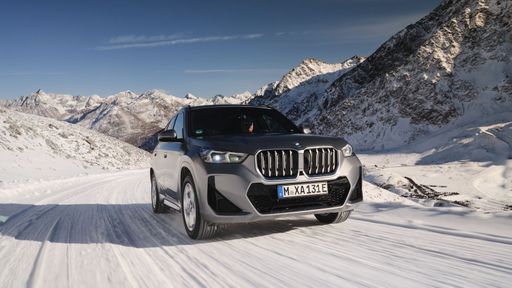
BMW iX1
Costs and Consumption
View detailed analysis
Engine and Performance
View detailed analysis
Dimensions and Body
View detailed analysis
BMW iX1
The BMW iX1 wraps BMW's electric ambition into a compact SUV package that feels unexpectedly premium, with sharp handling and a crisp, modern cabin that keeps the driver in charge. It's ideal for buyers who want a stylish, quiet daily driver with useful practicality and tech-savvy touches — plus enough character to make the commute feel less like a chore and more like a short joyride.
details
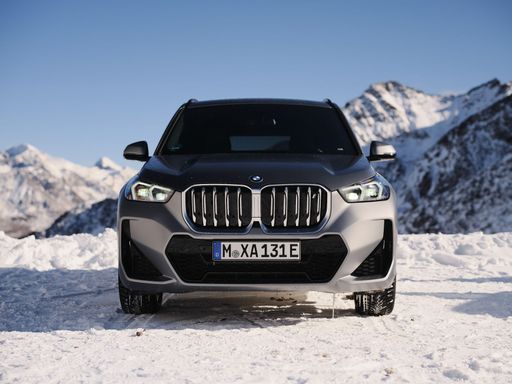
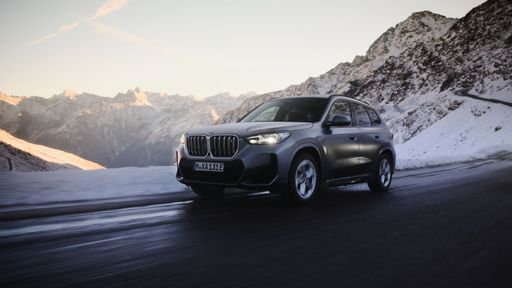
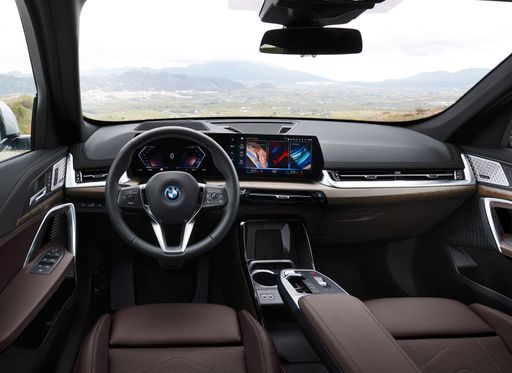
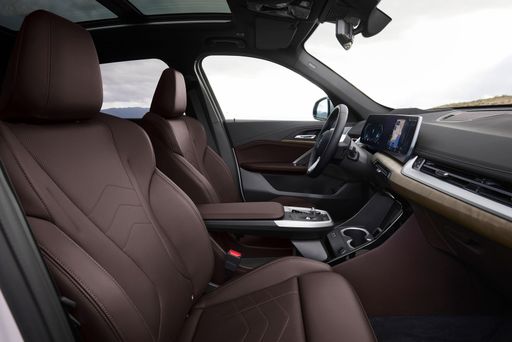
Toyota C-HR
The Toyota C-HR cuts a striking figure with its angular styling and coupe-like profile, so you’ll never go unnoticed in the supermarket car park. It balances everyday practicality with a nimble, city-friendly personality, making routine commutes feel a touch more fun without asking for forgiveness.
details




Costs and Consumption |
|
|---|---|
|
Price
41800 - 54600 £
|
Price
29100 - 42800 £
|
|
Consumption L/100km
-
|
Consumption L/100km
0.8 - 5.1 L
|
|
Consumption kWh/100km
15.8 - 17.1 kWh
|
Consumption kWh/100km
-
|
|
Electric Range
436 - 463 km
|
Electric Range
68 km
|
|
Battery Capacity
64.80 kWh
|
Battery Capacity
-
|
|
co2
0 g/km
|
co2
17 - 115 g/km
|
|
Fuel tank capacity
-
|
Fuel tank capacity
43 L
|
Dimensions and Body |
|
|---|---|
|
Body Type
SUV
|
Body Type
SUV
|
|
Seats
5
|
Seats
5
|
|
Doors
5
|
Doors
5
|
|
Curb weight
1940 - 2085 kg
|
Curb weight
1505 - 1755 kg
|
|
Trunk capacity
490 L
|
Trunk capacity
350 - 447 L
|
|
Length
4500 mm
|
Length
4362 mm
|
|
Width
1845 mm
|
Width
1832 mm
|
|
Height
1616 mm
|
Height
1558 - 1564 mm
|
|
Max trunk capacity
1495 L
|
Max trunk capacity
1076 - 1155 L
|
|
Payload
495 kg
|
Payload
375 - 425 kg
|
Engine and Performance |
|
|---|---|
|
Engine Type
Electric
|
Engine Type
Full Hybrid, Plugin Hybrid
|
|
Transmission
Automatic
|
Transmission
Automatic
|
|
Transmission Detail
Reduction Gearbox
|
Transmission Detail
CVT
|
|
Drive Type
Front-Wheel Drive, All-Wheel Drive
|
Drive Type
Front-Wheel Drive, All-Wheel Drive
|
|
Power HP
204 - 313 HP
|
Power HP
140 - 223 HP
|
|
Acceleration 0-100km/h
5.6 - 8.6 s
|
Acceleration 0-100km/h
7.4 - 9.9 s
|
|
Max Speed
170 - 180 km/h
|
Max Speed
175 - 180 km/h
|
|
Torque
250 - 494 Nm
|
Torque
-
|
|
Number of Cylinders
-
|
Number of Cylinders
4
|
|
Power kW
150 - 230 kW
|
Power kW
103 - 164 kW
|
|
Engine capacity
-
|
Engine capacity
1798 - 1987 cm3
|
General |
|
|---|---|
|
Model Year
2022 - 2023
|
Model Year
2024 - 2025
|
|
CO2 Efficiency Class
A
|
CO2 Efficiency Class
C, B
|
|
Brand
BMW
|
Brand
Toyota
|
Is the BMW iX1 offered with different drivetrains?
The BMW iX1 is available as Front-Wheel Drive or All-Wheel Drive.




